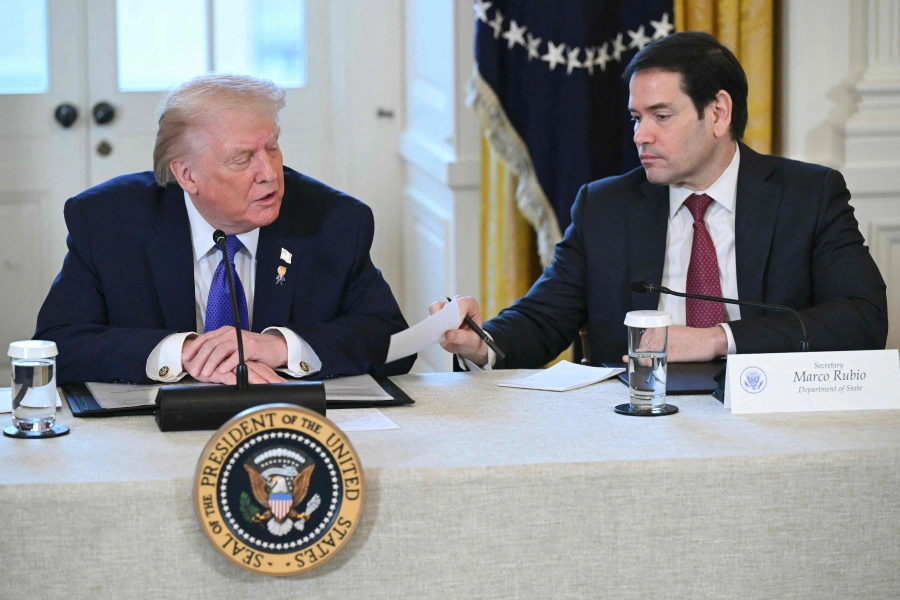Public education institutions are indispensable in guaranteeing universal access to education. The state's responsibility to provide affordable, high-quality education through publicly owned institutions is a fundamental pillar of our 'socialism-oriented' federal democratic republic, as enshrined in our constitution. But regrettably, in recent years, the quality of public education has declined in Nepal, forcing even the general public to turn to private educational institutions. With no other viable option to secure their children's future, people are left with no choice but to resort to expensive private schools and colleges as the Nepali state has failed in its duty to deliver quality education through its own institutions.
As per the 60th annual report of the Office of the Auditor General, the declining trend of enrollment in community schools is deeply alarming. These schools, numbering 20,712 across the country and catering to Grades 1 to 8, have been witnessing a staggering 5 percent decrease in student numbers every year. The data from 2074 BS, which reported 4,857,000 students at the basic level in these schools, reveals a drastic decline of 20.14 percent to 3,879,000 in 2078 BS. In stark contrast, private educational institutions have experienced a staggering 47 percent increase in student enrollment during the same period. Despite efforts to boost enrollment in government-run institutions through provisions such as free textbooks, easy admissions, scholarships, and day meals, the situation remains grim. This concerning trend demands urgent attention and effective measures to restore the status of government-run educational institutions.
Despite the enactment of The Act Relating to Compulsory and Free Education 2075 BS, aimed at ensuring universal access to education, the effective implementation of this law remains a challenge. The government's investment in public education has not yielded the desired results, leading to a decline in the number of students in government-run universities as well. In fact, the University Grants Commission (UGC) has recently proposed a concept paper recommending the closure of 218 community colleges, each with fewer than 100 students. This decision is concerning as it will not only restrict access to education but also increase reliance on profit-oriented private educational institutions. The fact that 218 out of the total 537 community colleges in the country have such low student numbers is indicative of the deteriorating quality of government education. Urgent measures are needed to address this trend and uphold the importance of quality public education for all.
Regulation of private education essential: Minister Poudel

Research conducted by the University Grants Commission (UGC) has revealed that due to alarmingly low student enrollment, 21 constituent campuses of Tribhuvan University are being considered for mergers. Moreover, the unsatisfactory state of several private colleges has led to 345 such institutions, each with fewer than 100 students, also facing the prospect of mergers. The educational institutions, registered as non-profit community campuses, receive an annual grant of Rs 700,000 from the UGC with the aim of improving the quality of education. However, it is disheartening to note that these grants have not been utilized properly and effectively for their intended purpose.
Despite allocating 10 percent of the total budget of Rs 196 billion to the education sector in the current academic session, the government has found that the results do not match the investment. As a result, the government has adopted a policy of mergers, in line with the provisions of the National Education Policy 2076 BS, to address the issue of low student enrollment in educational institutions. However, this trend of decreasing rather than increasing the number of educational institutions is alarming, considering that weak educational institutions in the country have forced many Nepali students to seek education abroad. This has led to a scarcity of skilled human resources in Nepal, as most students do not return to contribute to the workforce. It is imperative to address this situation and prioritize the quality and accessibility of education within the country to retain talent and foster sustainable development.
The effectiveness of educational institutions relies heavily on the quality of teachers and administrators who run them. In addition, the curricula should be developed to meet the needs of today's world, which has entered the age of artificial intelligence. It is crucial for the government to address the significant educational challenges it faces, including the decline in student enrollment in government schools and colleges. One major reason for the failure of public education is the politicization of schools and colleges. When students and teachers prioritize political activities over teaching and learning, it is bound to hamper the educational environment and quality of education. The government must analyze and find solutions to this issue.
Furthermore, the perception that completing school education only leads to migration to Gulf countries and Malaysia for employment undermines the value of education. It is essential to create opportunities for employment within the country, so that education is seen as a means to build a prosperous future rather than a mere stepping stone for migration. By addressing the politicization of schools and colleges and promoting employment opportunities within the country, the government can take important steps towards improving the quality and relevance of education in our public education system.
Otherwise, our students will keep writing ‘See you in the Gulf’ on the back of their friends during their farewell functions!






































